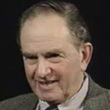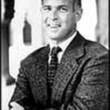Ratification: the people debate the Constitution, 1787-1788
Description
More Details
9781451606362
Table of Contents
From the Book
Excerpt
Similar Titles From NoveList
Similar Authors From NoveList
Published Reviews
Choice Review
While numerous books have been written on the ratification of the US Constitution, none rises to the level of this work of outstanding scholarship by eminent scholar Maier (MIT). Maier uses "The Documentary History of the Ratification of the Constitution" series from the Wisconsin Historical Society to provide a trove of original materials that enrich her scholarly resources. The heart of the work is the author's detailed development and full coverage of the ratification struggle within each state, paying particular attention to the key states of Massachusetts, Virginia, and New York, which each receive two chapters. Of major importance is Maier's clarification that the debates within the convention halls were more sophisticated than simple clashes between Federalists and anti-Federalists. Although the study ends with the struggle for ratification, an epilogue carries it through to the ratification of the first 10 amendments. The postscript, "In Memoriam," sheds light on how life after the convention treated several of the delegates. Although this is scholarship of the highest level, the writing style is readable and will appeal to a broad community beyond just scholars. A necessary acquisition for all libraries. Summing Up; Essential. All levels/libraries. J. J. Fox Jr. emeritus, Salem State College
Booklist Review
A notable historian of the early republic, Maier devoted a decade to studying the immense documentation of the ratification of the Constitution. Scholars might approach her book's footnotes first, but history fans who delve into her narrative will meet delegates to the state conventions whom most history books, absorbed with the Founders, have relegated to obscurity. Yet, prominent in their local counties and towns, they influenced a convention's decision to accept or reject the Constitution. Their biographies and democratic credentials emerge in Maier's accounts of their elections to a convention, the political attitudes they carried to the conclave, and their declamations from the floor. The latter expressed opponents' objections to provisions of the Constitution, some of which seem anachronistic (election regulation raised hackles) and some of which are thoroughly contemporary (the power to tax individuals directly). Ripostes from proponents, the Federalists, animate the great detail Maier provides, as does her recounting how one state convention's verdict affected another's. Displaying the grudging grassroots blessing the Constitution originally received, Maier eruditely yet accessibly revives a neglected but critical passage in American history.--Taylor, Gilbert Copyright 2010 Booklist
Publisher's Weekly Review
This book about one of the most momentous occasions in the nation's history is the definitive one. Maier, a distinguished MIT historian of the Revolutionary era, relates with more authority and in more detail than ever before the long, uncertain course from the Constitution's adoption by the Constitutional Convention in 1787 until its ratification by the states in 1788 and of the Bill of Rights soon after. While not lacking drama, it's mostly a state-by-state look at the give-and-take of political and constitutional debate. While the nation's early greats-Washington, Madison, Patrick Henry-get their due, many lesser-known figures, often simple men who shone for this moment alone, play their parts. Maier shows how the Constitution's supporters and defenders won through ratification and why in the end even most of its detractors, in the words of one, concluded that this was "the best government in the world." For those who seek judicious assessment, sober reflection, and masterful analysis of the debates that secured the Constitution, this book is an unsurpassable achievement. 16 pages of b&w illus. (Oct.) (c) Copyright PWxyz, LLC. All rights reserved.
Library Journal Review
Writing the Constitution was the easy part, argues eminent historian Maier. Ratification required special committees for each state elected by popular vote. During the ensuing year, citizens gathered throughout the country to argue the merits of the young nation's Constitution and the accompanying Bill of Rights. (LJ 9/15/10) (c) Copyright 2012. Library Journals LLC, a wholly owned subsidiary of Media Source, Inc. No redistribution permitted.
Kirkus Book Review
An acclaimed scholar brilliantly tracks the fight over the Constitution's ratification: Was the proposed new government a confirmation or a betrayal of the American Revolution?After meeting throughout the stifling of 1787 summer for the express purpose of recommending changes to the Articles of Confederation, delegates emerged from their secret deliberations in Philadelphia with a startling new proposal for a more energetic federal government. To take effect, the Constitution would require approval from at least nine of the 13 states. The ensuing national debate revisited virtually all the contentious issues that had roiled the Constitutional Convention, only this time the arguments were public and even more politically charged. Today, our reverence for the Constitution obscures the passionate battle over its approval by 18th-century Americans. Relying heavily on the massive documentary record of the ratifying conventions compiled by the Wisconsin Historical Society, Maier (American History/MIT;American Scripture: Making the Declaration of Independence, 1998, etc.) revives those intense emotions, demonstrating how the arguments were shaped by each state's peculiar history and by the leading participants in the debate. The author also shows how the outcome in each statewith particular attention paid to the crucial conventions in Massachusetts, Virginia and New Yorkaffected the terms of the argument as the process unfolded. Notwithstanding eventual unanimity, the debate was close-run, despite the many advantages held by Federalist supporters. They controlled the majority of newspapers and dominated the professional and commercial classes most desirous of a strong national authority, and they often resorted to steamrolling opponents, obscuring nuanced objections to the Constitution and painting adversariesthese "Antifederalists," a term to which Maier objectsas dangerous anarchists. Most of all, the Federalists had the imprimatur of George Washington, the new nation's most unifying figure. The author orders her wide-ranging, complex narrative by frequently checking in with Washington, charting the progress of the ratifying conventions through the missives and messengers to and from Mount Vernon.A scrupulously even-handed presentation based on impressive scholarship.]] Copyright Kirkus Reviews, used with permission.
Booklist Reviews
A notable historian of the early republic, Maier devoted a decade to studying the immense documentation of the ratification of the Constitution. Scholars might approach her book's footnotes first, but history fans who delve into her narrative will meet delegates to the state conventions whom most history books, absorbed with the Founders, have relegated to obscurity. Yet, prominent in their local counties and towns, they influenced a convention's decision to accept or reject the Constitution. Their biographies and democratic credentials emerge in Maier's accounts of their elections to a convention, the political attitudes they carried to the conclave, and their declamations from the floor. The latter expressed opponents' objections to provisions of the Constitution, some of which seem anachronistic (election regulation raised hackles) and some of which are thoroughly contemporary (the power to tax individuals directly). Ripostes from proponents, the Federalists, animate the great detail Maier provides, as does her recounting how one state convention's verdict affected another's. Displaying the grudging grassroots blessing the Constitution originally received, Maier eruditely yet accessibly revives a neglected but critical passage in American history. Copyright 2010 Booklist Reviews.
Library Journal Reviews
We talk a lot about the Constitution these days, but do we remember from our history books what exactly happened during the two-year ratification debate? Here's what promises to be an excellent refresher course from distinguished MIT history professor Maier, author of American Scripture. Copyright 2010 Reed Business Information.
Library Journal Reviews
In this engaging, fast-paced account, Maier (William R. Kenan Jr. Professor of American History, MIT; American Scripture: Making the Declaration of Independence) takes on one of the most misunderstood episodes in American history: the ratification of the U.S. Constitution. Eschewing detailed discussion of the intense newspaper and pamphlet debates in the public sphere (including, e.g., The Federalist Papers), Maier focuses the bulk of her deeply researched and well-crafted narrative on the debates inside the state ratifying conventions. While previous studies such as Robert Rutland's Ordeal of the Constitution and Jackson Turner Main's The Antifederalists: Critics of the Constitution, 1781–1788 have presented the opponents of the Constitution as a monolithic group under the heading "Antifederalists," Maier establishes the Constitution's opponents as an exceedingly diverse group of individuals whose ultimate question primarily concerned not if but how, through various amendments, the Constitution would be approved. VERDICT Crafted primarily from a keen scholarly analysis of the Wisconsin Historical Society's expansive and ongoing Documentary History of the Ratification of the Constitution, Maier's monumental study, filled with penetrating conclusions, stands presently as the authoritative account of the ratification of the Constitution. Highly recommended for specialists and those seeking further study beyond the general literature on the subject.—Brian Odom, Pelham P.L., AL
[Page 85]. (c) Copyright 2010. Library Journals LLC, a wholly owned subsidiary of Media Source, Inc. No redistribution permitted.Publishers Weekly Reviews
This book about one of the most momentous occasions in the nation's history is the definitive one. Maier, a distinguished MIT historian of the Revolutionary era, relates with more authority and in more detail than ever before the long, uncertain course from the Constitution's adoption by the Constitutional Convention in 1787 until its ratification by the states in 1788 and of the Bill of Rights soon after. While not lacking drama, it's mostly a state-by-state look at the give-and-take of political and constitutional debate. While the nation's early greats--Washington, Madison, Patrick Henry--get their due, many lesser-known figures, often simple men who shone for this moment alone, play their parts. Maier shows how the Constitution's supporters and defenders won through ratification and why in the end even most of its detractors, in the words of one, concluded that this was "the best government in the world." For those who seek judicious assessment, sober reflection, and masterful analysis of the debates that secured the Constitution, this book is an unsurpassable achievement. 16 pages of b&w illus. (Oct.)
[Page ]. Copyright 2010 Reed Business Information.
































